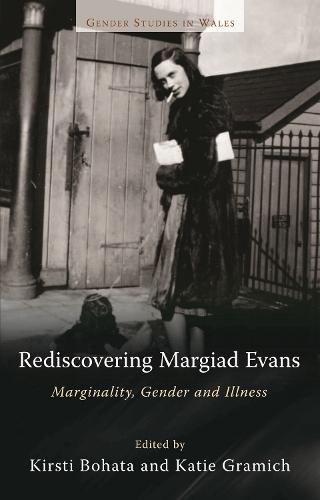Full Product Details
Author: Kirsti Bohata ,
Katie Gramich
Publisher: University of Wales Press
Imprint: University of Wales Press
Dimensions:
Width: 13.80cm
, Height: 1.90cm
, Length: 21.60cm
Weight: 0.318kg
ISBN: 9780708325605
ISBN 10: 0708325602
Pages: 288
Publication Date: 28 February 2013
Audience:
Professional and scholarly
,
Professional & Vocational
Format: Paperback
Publisher's Status: Active
Availability: In Print

This item will be ordered in for you from one of our suppliers. Upon receipt, we will promptly dispatch it out to you. For in store availability, please contact us.
Reviews
This is an excellent collection of essays on the early twentieth-century writer, Margiad Evans, a distinctive and original writer whose talent has been little recognized. The contributors draw on a wealth of undiscovered archival resources in this scholarly and engaging account of many different aspects of Evans's life and work, including her identity as a woman, her epilepsy and medical condition, and her gothic imagination. Professor Mary Joannou, Anglia Ruskin University
This is an excellent collection of essays on the early twentieth-century writer, Margiad Evans, a distinctive and original writer whose talent has been little recognized. The contributors draw on a wealth of undiscovered archival resources in this scholarly and engaging account of many different aspects of Evans's life and work, including her identity as a woman, her epilepsy and medical condition, and her gothic imagination. Professor Mary Joannou, Professor of Literary History and Women's Writing, Anglia Ruskin University This is an important book, and an interesting one. The contributors include many of the most distinguished scholars of Welsh Writing in English, and between them they do a marvellous job of remembering Margiad Evans, an author for whom memory was centrally important. Evans's very liminality has seen her disappear between the cracks of a number of scholarly preoccupations, squeezed out of literary history by masculinist and high-culturalist assumptions about Modernism, and by colonialist assumptions about Wales. The rigid thinking of conventional literary aesthetics has done Margiad Evans a great disservice, and the editors and contributors to this book have done wonders to redress this. Professor Darryl Jones, School of English, Trinity College Dublin
This is an excellent collection of essays on the early twentieth-century writer, Margiad Evans, a distinctive and original writer whose talent has been little recognized. The contributors draw on a wealth of undiscovered archival resources in this scholarly and engaging account of many different aspects of Evans's life and work, including her identity as a woman, her epilepsy and medical condition, and her gothic imagination. Professor Mary Joannou, Professor of Literary History and Women's Writing, Anglia Ruskin University
Author Information
Kirsti Bohata is a Lecturer in English at Swansea University, Katie Gramich is Reader in English Literature at Cardiff University.




